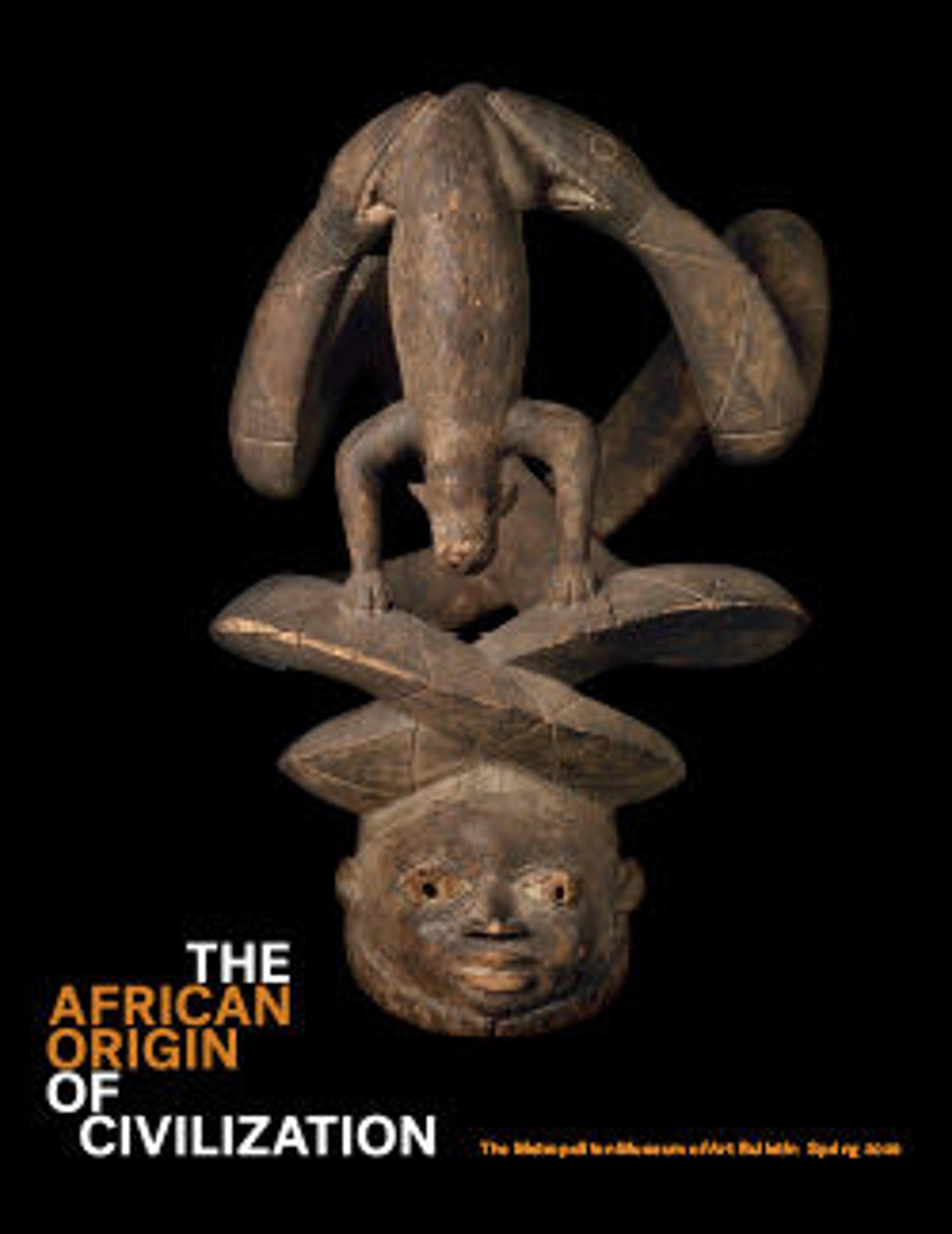Ci wara headdress
With menacing horns and a spectral bodily presence this at once powerful and elegant creation constitutes a tribute to the mythical Bamana culture hero, Ci Wara. In this historically agrarian society, mastery of the knowledge necessary to harness the forces of nature in order to produce sustenance is seasonally celebrated with performances of paired masquerades. The visual focal point of these tributes are the carved sculptural elements worn as crests. These bold abstract forms fuse together the features of creatures drawn from nature including the roan antelope, the anteater, and the pangolin. In these dances the choreography simulates the tilling of the soil, the cascading vegetable fiber costume evokes the rains, and the male headdress references the radiance of life-giving sun. Bamana sculptors have endlessly reinterpreted the formal design of the classic ci wara headdress. The author of this work has produced an utterly original landmark striking for its alternation of bold materiality with negative space.
Artwork Details
- Title: Ci wara headdress
- Artist: Bamana numu (blacksmith)
- Date: 19th century
- Geography: South-central Mali
- Culture: Bamana
- Medium: Wood, metal
- Dimensions: H. 30 × W. 4 1/4 × D. 5 3/4 in. (76.2 × 10.8 × 14.6 cm)
- Classification: Wood-Sculpture
- Credit Line: Purchase, Andrea Bollt Bequest, in memory of Robert Bollt Sr. and Robert Bollt Jr., 2016
- Object Number: 2016.574
- Curatorial Department: The Michael C. Rockefeller Wing
More Artwork
Research Resources
The Met provides unparalleled resources for research and welcomes an international community of students and scholars. The Met's Open Access API is where creators and researchers can connect to the The Met collection. Open Access data and public domain images are available for unrestricted commercial and noncommercial use without permission or fee.
To request images under copyright and other restrictions, please use this Image Request form.
Feedback
We continue to research and examine historical and cultural context for objects in The Met collection. If you have comments or questions about this object record, please contact us using the form below. The Museum looks forward to receiving your comments.
